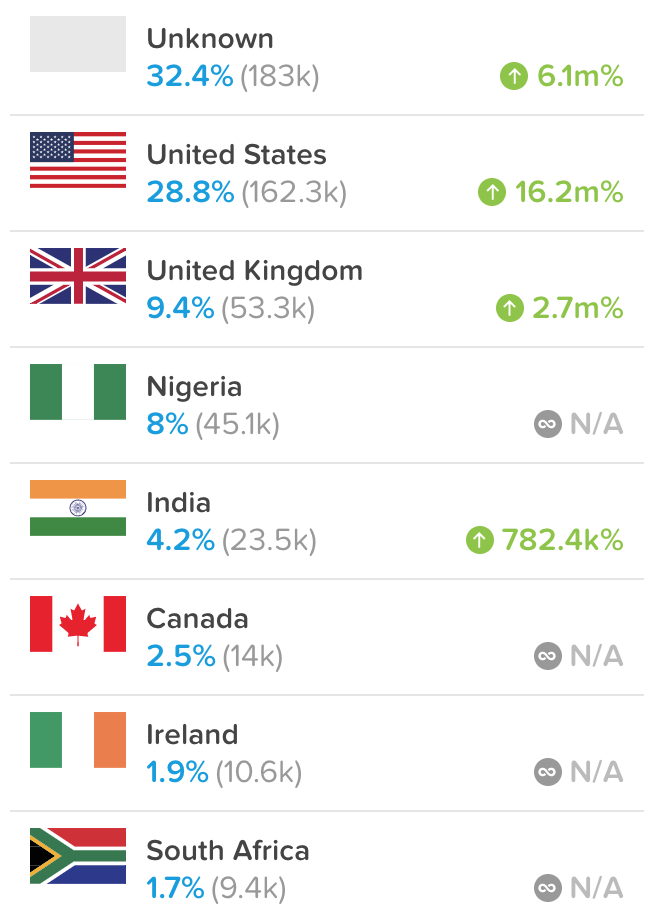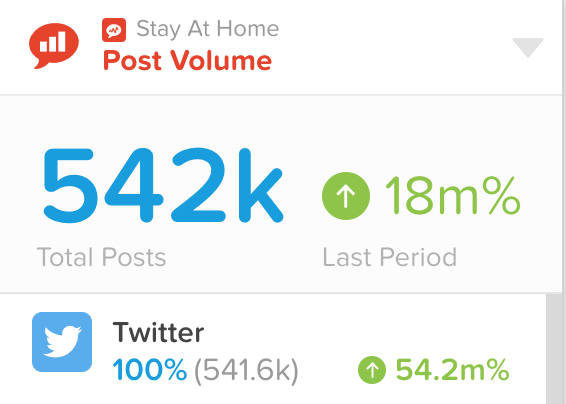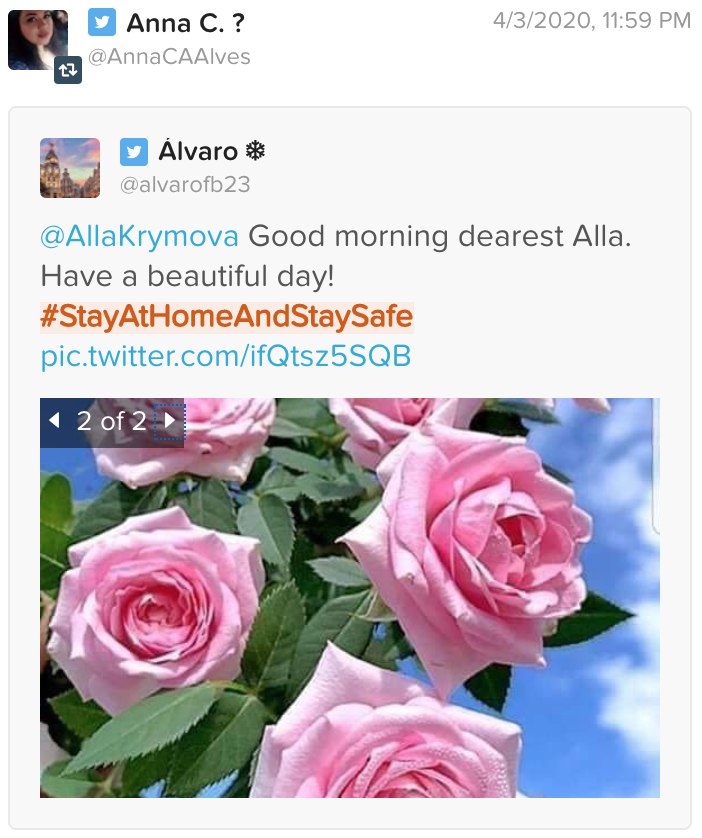How Are You?

The hashtag #StayAtHomeAndStaySafe has been trending globally as COVID-19 is on all six continents. Photo from Adam Brown Social Media Command Center.
Prepare yourselves…
Proms and graduations are canceled, toilet paper is disappearing from the shelves, panic buying is occurring, celebrities are making awkward videos about hand-washing and engaging in tone-deaf group singing, people are fighting over cleaning products, there is an increase of racial discrimination and violence against Asian and Asian Americans, many are being fired and laid-off, the stock market is dropping, careless 20-somethings partied on a beach as if they are invincible, some people are afraid to get tested because of their immigration status, mythologies about Black people are harming the Black community, politicians arguing about providing basic human rights, and an ice rink being turned into a morgue and drive-thru funerals in Spain.
Elderly people are terrified of doing activities such as grocery shopping in fear of becoming infected. Globally, people are wondering how they are going to sustain their livelihood as well.
I have heard reports and seen videos of customers being rude to people or imposing their apprehension of an uncertain future on essential employees.
People working these jobs have been deem and treated as non-essential for years. Finally, the world is seeing how vital these people are to daily life. Be kind to them. They are working long hours non-stop. It is not their fault that stores do not have essential products, blame panic buying and fear of self-fulfillment. They are doing the best to provide for their families on top of helping your own, working in highly stressful environments and risking infection. This job may be their only income.
One would think these events would happen in a span of decades or years. Sadly, these events have occurred within only five months. The cause: a global pandemic with unprecedented consequences. The current status of the world is in a vulnerable and exposed condition.
The Beginning
The World Health Organization declared the outbreak a pandemic March 11. Confirmed cases of the coronavirus or COVID-19 have rapidly increased since November 2019 prior to WHO’s declaration.
According to the Coronavirus Resources Center, created by Johns Hopkins University and Medicine, there are currently over 1.4 million confirmed cases of COVID-19 as of April 8 and rapidly increasing. On a positive note, 301,417 individuals worldwide have recovered from COVID-19. The U.S. has 399,886 confirmed cases with 22,461 who recovered as of April 8.
Since March 11, the world started transforming into a new environment of chaos, which the fragility and inequality embedded within American systems and structures (e.g., health care, wealth, and government) in society are continually being exposed and deteriorating. The Harvard Business Review stated the U.S. needs a “robust” health care system that not only provides complex care, but basic health needs as well.
The article mentioned a 2017 study conducted by The Commonwealth Fund that focused on comparing the U.S.’s health care system to 10 countries: Switzerland, Sweden, France, Germany, Netherlands, Canada, U.K., New Zealand, Norway and Australia. The researchers found the U.S. is “the only high-income country lacking universal health insurance coverage.”
The report stated it is not because of doctors and nurses lack of performance and skill, but how they are forced to focus more in “billing and insurance claims.” Thirty-three percent of individuals in the U.S. had a “cost-related access problem to medical care” in 2017. Additionally, a prominent problem with affordability related to individuals insurance companies denying them “payment for medical care or did not pay as much as expected.”
Humanity Being Tested
While I cannot speak for everyone, I am presuming people are noticing an increase in news coverage of COVID-19 on every news channel nationwide. The amount of news coverage can be informative, yet exhausting with the addition of social media posts. I have not seen this many hand-washing videos since I was a child. Honestly, I find it tragic grown adults need to be taught this action.
This pandemic is showing the perverse side of humanity, but nevertheless, possibly pushing humans to (re)discover the idea of being a collective society and practicing “universal love.” There have been heroes valuing people over their jobs and reputations, creativity and innovation, praising those who work thankless jobs, doctors creating TikTok videos for positivity, and other acts of kindness. One video showed doctors and nurses thanking their hospital cleaning crew.
While this pandemic is showing the good and bad in people, humanity will be tested in the coming months (we already are). The key is to have empathy and an open-minded to other people’s situations… and also social distancing.
Social Distancing and New University Life
Many are practicing social distancing, which decreases one’s chance of getting COVID-19 and spreading it to others. Individuals have to be at least six feet apart to prevent spreading the virus. WHO stated people need to avoid large gatherings and crowded spaces, work remotely, shutdown schools, convert to virtual learning and communicate electronically to prevent the spread. Unfortunately, there have been incidents of people partying during spring break, going to church, having weddings and hosting house parties. Countries and states are now enforcing laws since some citizens are not taking this pandemic seriously.

The hashtag #StayAtHomeAndStaySafe is becoming more popular because many Americans are taking the pandemic seriously. Photo from Adam Brown Social Media Command Center.
Countries such as Russia, Germany, Italy, Austria and France have all closed its borders to foreigners to lessen the spread of COVID-19. According to USA Today, at least 34 states such as New Hampshire, Colorado, Minnesota, Wisconsin, Nevada, Hawaii, various counties in North Carolina, Virginia, Puerto Rico, New Mexico and Kentucky have enacted some form of protection orders to prevent residents from getting COVID-19. Within six days, the post volume for #StayAtHomeAndStaySafe jumped from 31,000 (March 29)* to 515,000 (April 3) to 564,000 (April 8). Surprisingly, the current overall sentiment score has been consistent with is 86.8% positive (April 3) and 86.2 percent (April 8). Many are showing happy images of flowers and spending time with children. This indicates some may be adjusting well to the quarantine life , but some are simply striving to survive.
However, this is not the case for all. Many are trying to adjust to their abrupt move to new digital life and attempting to balance home and work life. Top schools such as Harvard University and the Massachusetts Institute of Technology quickly told their students to move out of their dorms. Harvard students had five days to move out and told not to return after spring break. One student at MIT, Lilly Chin, recollected the moment when students received the email to move out, “I learned that MIT had sent its official e-mail out from the sounds of people in an undergraduate dorm yelling loud enough to be heard from my lab building.” She described the air as bitter while students were moving out their dorms.
According to Buzzfeed News, there were outcries nationwide since some students live in different countries, are from low income families or were afraid to return to hostile home environments. While I understand why universities are taking these measures, some financial incentive should have be given prior to these notices. The Nation curated a list of personal accounts from seven students who described how the spread of the coronavirus has affected their lives and students reactions on-campus.
This makes me appreciative of The University of Tennessee, Knoxville administrators diligent work to inform the campus community about their changes on transitioning to online learning, refunds of various fees and student employment counseling services. Chancellor Donde Plowman and her staff have continuously informed students about their decisions surrounding the well-being of the campus community by providing daily updates. Prominent alumni such as Peyton Manning and Josh Dobbs logged into a Zoom class to boast students spirits.

In association with the hashtag, many social media users are show images or videos of flowers and hanging out with children. Photo from Adam Brown Social Media Command Center.
From Hollow Intentions…
At first, this article was going to be about five things one can do at home while practicing social distancing. I was going to feature links of good books to read, Netflix shows
to watch, and science experiments to do with children (if you are a parent) at home. However, it just seemed… wrong. It was a path of hollow intentions. Almost as if, it was to divert my mind (and hopefully others) to something more positive because that is what we are taught to do as humans.
Humans are conditioned to engage in the mindset of “see the light at the end of the tunnel,” “it will be over soon,” “see the brighter side of a bad situation” or “this is the content I like to see” (last quote related to social media). I understand why people engage in these behaviors. It is a coping mechanism to make sense of a situation beyond one’s control. It is understandable that people need to be happy and engage in this mindset, yet does it really address the underlying issues and emotions (if any) one may be feeling? Sadness, anger, confusion, anxiousness, fear of uncertainty, frustration and so on? I cannot answer that, but maybe you can in order to engage in self-care.
… To Inspiration
This article was inspired after two class sessions: 1.) a class I attended and 2.) a class were I am a graduate teaching associate.
The first occurred on a Wednesday after spring break. My instructor placed us into breakout groups to discuss how to grapple with our university changing over to a digital world from a graduate student’s perspective. This class is usually a group of lighthearted students who are constantly laughing and chattering. It truly is the happiest and most energetic group of people I have ever been around while attending UTK. Occasionally, many may be tired and drained, but there was something different about this session.
It felt like an underlying slow burn similar to the concept and myth of boiling frog syndrome. If a frog is placed in room temperature water and the temperature increases, they will not sense the change even if it is boiling. I sensed this feeling in both classrooms. I am not saying my classmates and students are frogs. The point is to focus on the concept in the second sentence. For both graduate and undergraduate students, they are just trying not to have a nervous breakdown because they are being beaten from all angles and trying to keep their cool.
From a graduate student’s perspective, we are taught the idea that complexity and hardships are embedded in graduate student life. Graduate students maybe instructors, researchers, parents, possibly from lower socioeconomic statuses, sole breadwinners and /or live in rural counties. Graduate students are possibly experiencing mental strain that goes beyond their limit at the moment. Schools need to be aware of these niche populations to may sure they are accommodating as possible.
Quite frankly, the mental strain and exhaustion was there before the pandemic for many graduate students, which is not a good thing to say. If you are an administrator, faculty and/or staff member, just remember they are students first before any other role within their institution. Hence the phrase, “graduate students.”
The Aim of This Blog Post
UTK administration provided a PDF document about coping strategies during this novel COVID-19 pandemic. I wanted to focus on the first bullet:
“Acknowledge your reactions and the reactions of your friends and family. Simply validating that this is a difficult time for everyone can be reassuring. Approaching this issue as a family can feel empowering and less isolating,” stated in the document.
Thus, my question for anyone reading this is: “How are you truly feeling?” and “Are you O.K.?” I will repeat this again: “Are you O.K.?” Have you texted someone and asked them those questions as well? As stated in the provided document, speaking to someone and seeking help is an act of self-care. Engaging in these conversations can make one aware of and address their one feelings and emotions. It is O.K. to feel frustrated, angry, sad, confused or whatever emotion you are feeling. There is nothing wrong with exploring these emotions. In other words, it is O.K. not to feel O.K.
If you are reading this, I want you to know… embrace those emotions to understand them and become familiar with those emotions. I am not saying let those emotions consume you, yet I am saying you have the basic human right to feel these emotions. Being consumed in those emotions can make one withdraw and self-isolate.
As stated in the document, call a friend or family member and ask how they are doing, talk to your professor, mentor and instructor. Engage in dialogue with them and go back-and-forth about your experiences and coping methods. They are probably stressed and need to vent as well.
Just make sure to practice self-care and be informed about the world around you. Below are a few quick links to practice self-care and be informed.
Resources:
World Health Organization: Coronavirus Website
*Photo was accidentally deleted.